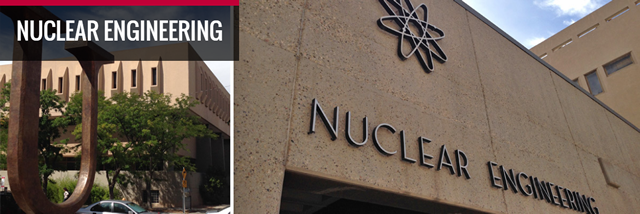
Nuclear Engineering ETDs
Publication Date
5-1975
Abstract
In radiation damage problems, it is desirable to know not only the neutron and gamma ray fluxes but also the energy deposition due to those fluxes. Following the recent availability of coupled neutron-gamma ray, multigroup-multitable cross sections and associated fluence-to-KERMA factors, an automated method has been developed for obtaining the energy deposition in a material region due to local neutron and gamma ray fluxes. Cross section sets which combine neutron and photon transport as well as a production matrix for neutron-induced gamma rays are used in the transport calculation. Thus in one discrete ordinates transport calculation, the energy deposition from incident neutrons, gamma-rays, and neutron-induced gamma rays in the system is obtained.
The forward (real flux) transport heating method developed in this paper is applied to find the neutron and gamma ray heating in the copper coil of a conceptual LASL design of a controlled thermonuclear reactor (CTR). In this particular case the gamma ray heating is four times that of the neutron heating. A test problem is used to compare the adjoint transport heating method to the forward method. It is shown that the two methods obtain reasonable and compatible results. However, the adjoint calculation is more suitable for problems containing a changeable source spectrum and a fixed geometry, whereas, for a problem with a fixed source spectrum but a changeable system design, the forward calculation is more appropriate.
These methods would be ideally suited to preliminary parameter studies for system design prior to more exact and more costly Monte Carlo calculations and detailed system testing. The heating methods are shown to be reliable, inexpensive, and easy to use.
Document Type
Thesis
Language
English
Degree Name
Nuclear Engineering
Level of Degree
Masters
Department Name
Nuclear Engineering
First Committee Member (Chair)
James A. Horak
Second Committee Member
Henry A. Sandmeier
Third Committee Member
James E. Cambell
Fourth Committee Member
Robert Leroy Long
Fifth Committee Member
Stanley Elmer Logan
Recommended Citation
Rigdon, Lewis Douglas. "Methods For Calculating Energy Deposition Using Coupled Neutron-Gamma Ray Transport." (1975). https://digitalrepository.unm.edu/ne_etds/126
